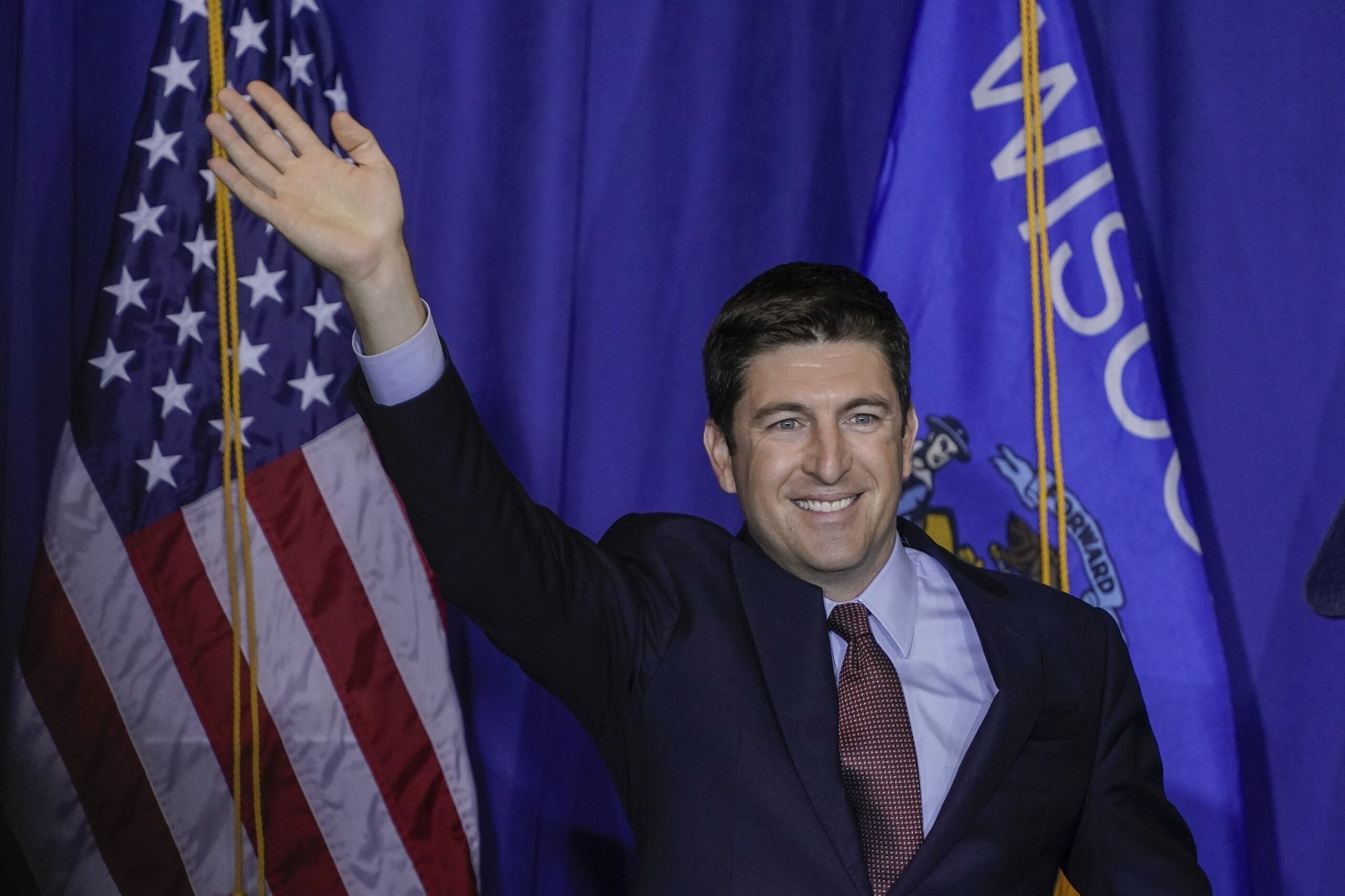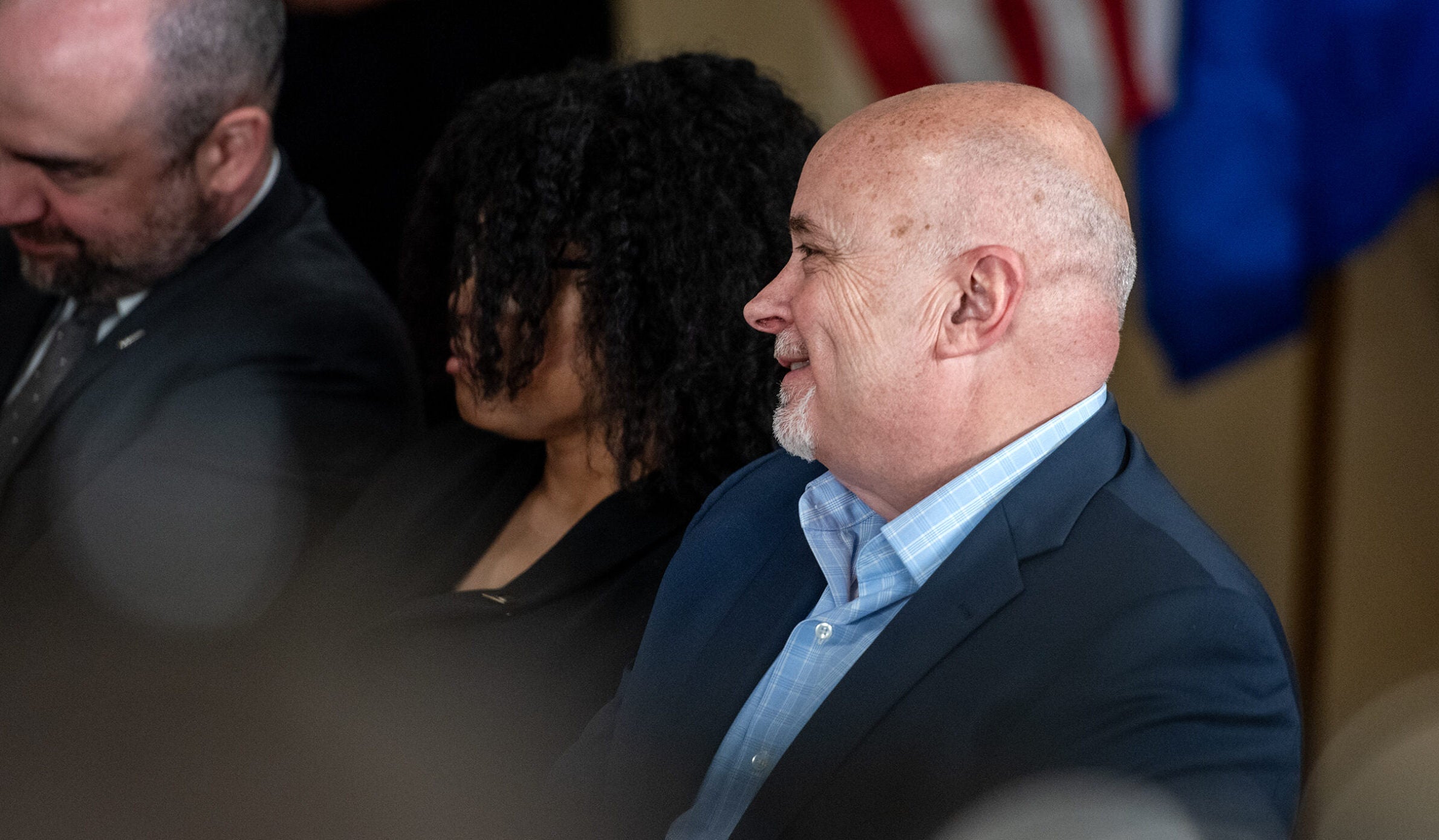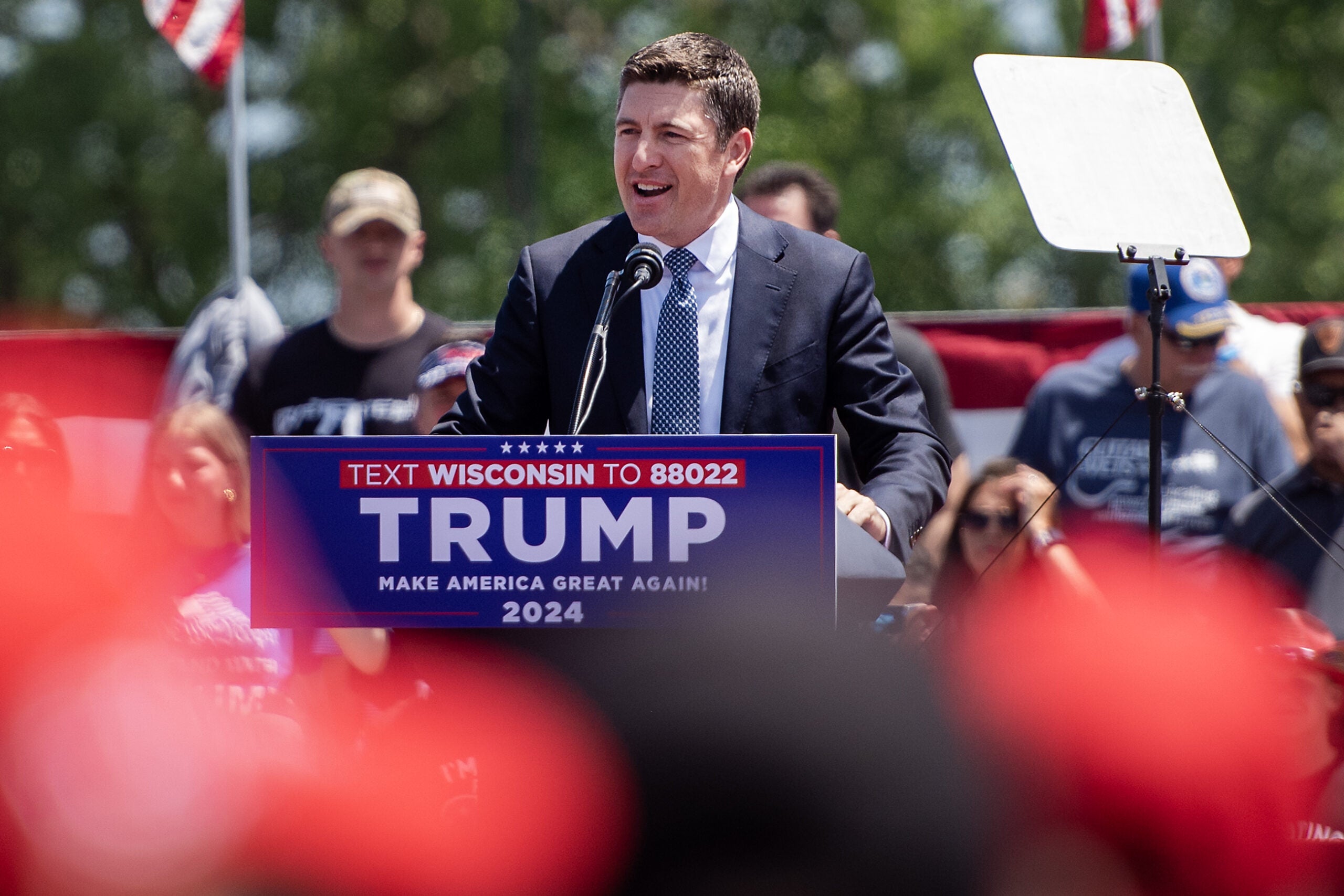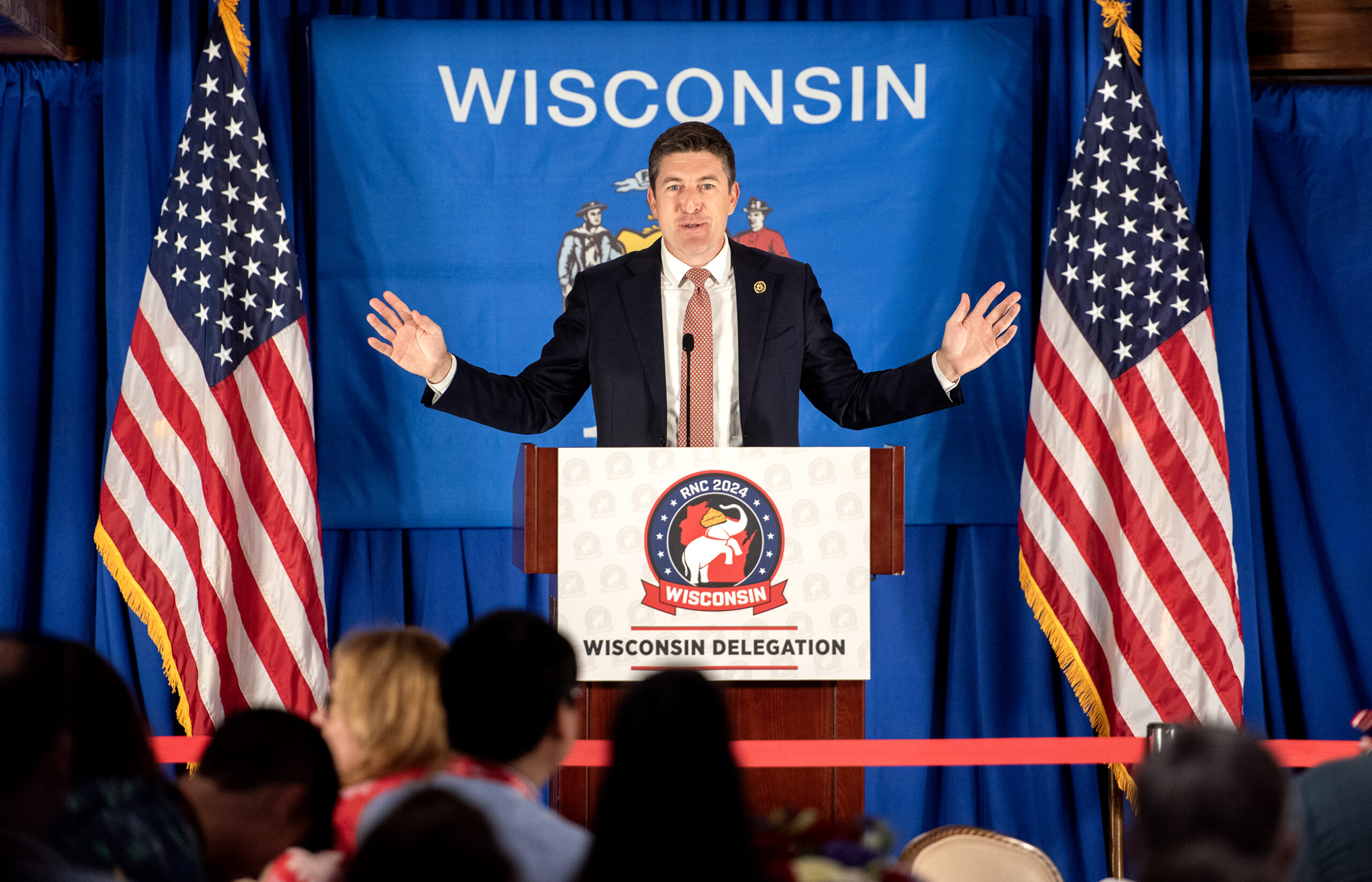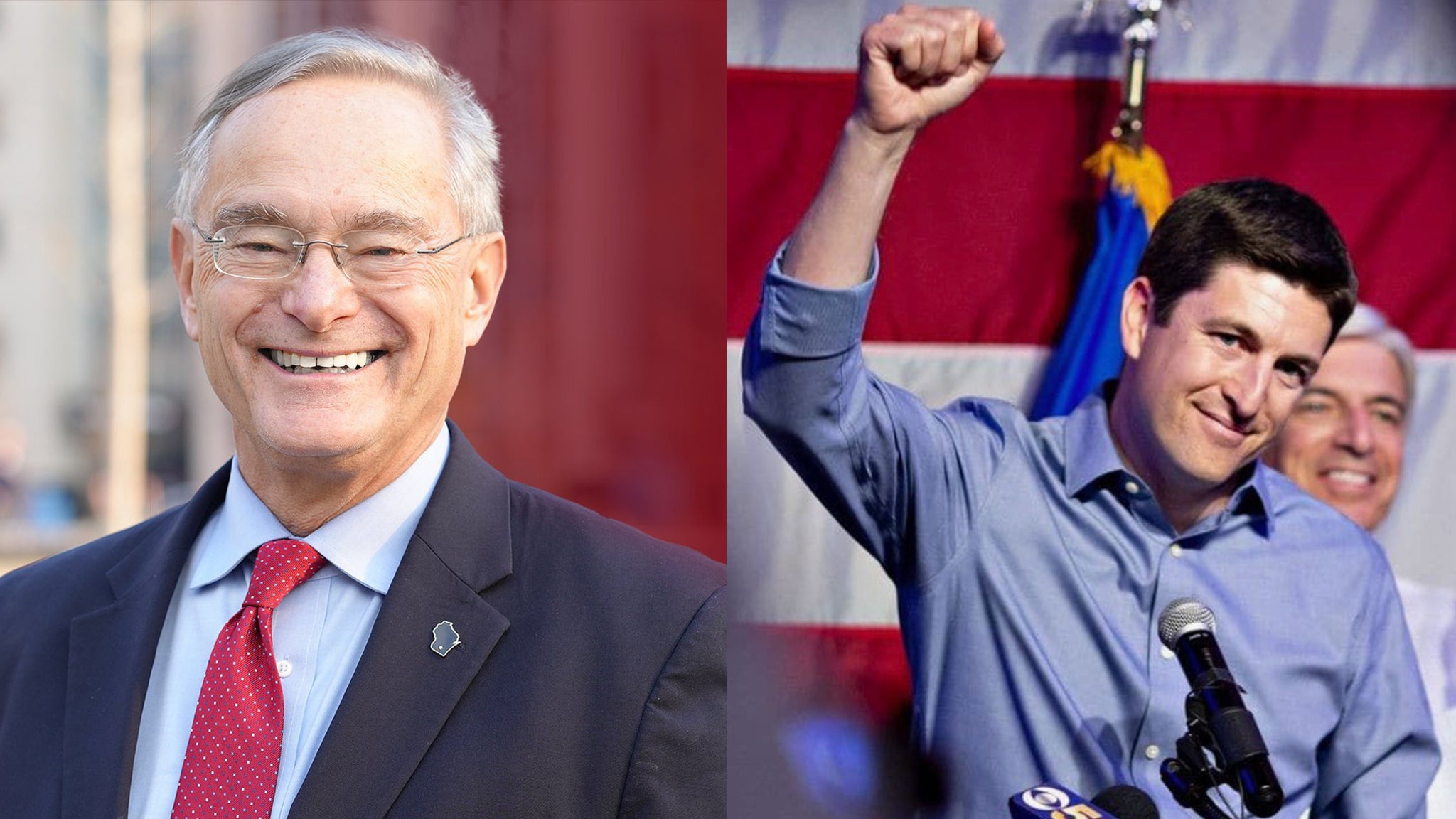U.S. Rep. Bryan Steil, R-Janesville, said defeating the coronavirus and getting Wisconsinites back to work are among his top priorities if he is to be re-elected to the U.S. House of Representatives in the Nov. 3 election.
Steil, a freshman representative, is running against Democrat Roger Polack for the 1st Congressional District seat in southeastern Wisconsin, which covers the southeastern region of the state, including the cities of Janesville, Racine and Kenosha.
In an interview with WPR’s “The Morning Show” host Kate Archer Kent, Steil emphasized local control for mandates related to the coronavirus, such as mask mandates, and investing more in training and body cameras for law enforcement in the wake of the recent protests in Kenosha and around the country.
Stay informed on the latest news
Sign up for WPR’s email newsletter.
The following interview has been edited for brevity and clarity.
Kate Archer Kent: If you’re elected into Congress, what are three things that you want to accomplish?
Bryan Steil: We need to ultimately defeat this virus and keep America healthy. We need to get Wisconsin back to work, and we’ve got to keep our communities safe. We need to make sure we’re doing everything we can to medically defeat this virus, making sure that we develop a vaccine, that we get the vaccine available and out to individuals, and we ultimately allow Americans to get our lives back.
We need to make sure we’re continuing pro-growth policies that put forward family sustaining jobs. And finally, we need to make sure that we keep our communities safe. We need to make sure that our law enforcement have the resources they need to be able to do that.
KAK: Gov. Tony Evers issued a new statewide mask mandate and the order is set to last until Nov. 21, if it survives legal challenges. Should the mask mandate be continued?
BS: We should not have a federal mask mandate, a one-size-fits-all approach is not correct. Using and allowing local decision-makers is the right approach. I follow the mask mandate when I’m traveling from my home in Janesville, to Washington, D.C., or when I go pick up food at the grocery store. What we need to do is follow the advice of our physicians and ultimately work to defeat this virus.
KAK: On the economic side of it, your chamber recently passed a revised stimulus bill with a stimulus check, the updated Heroes Act that includes $600 a week in federal unemployment benefits. Do you support weekly federal aid benefits for unemployed Americans?
BS: So the bill that went through the House was a very disappointing partisan bill that doesn’t have a chance of becoming law. This is where politics in Washington, D.C. gets in the way of good policy. There were even Democrats who voted against the bill expressing their disgust that we were not able to come to an agreement. I think what we need to stay focused on is providing relief to those people who’ve been negatively impacted.
KAK: What about going forward?
BS: That’s the exact discussion we should be focused on, making sure that people are able to cover their bills, cover their mortgage. (Unemployment benefits) should be capped at the income the individual was making previously.
So for example, if someone was making $18/hour before they were impacted by the coronavirus, providing them more money in the event that they’re not working is unfair to the individuals that are there and working. In the original plan of how unemployment insurance worked, that is the operation, Wisconsin pays roughly 50 percent. The federal government should assist in that program, but should not create an incentive where people are making more money staying home than they would if they’re working.
KAK: In the wake of the Kenosha officer shooting Jacob Blake, a Black male; and then in March, Breonna Taylor being shot and killed by a white officer, the officer not charged, what role should Congress have in addressing police brutality in Wisconsin and America?
BS: I’ve worked with Sen. Tim Scott from South Carolina on this exact issue.
I support a bill called the Justice Act, it has a large number of co-sponsors. I think there’s an opportunity yet this year to get this bill across the line.
It would do two really important things among an array of issues. One, it would provide funding for body cameras. If that funding had been in place, that would’ve been very helpful to be able to know more of the facts as things played out in a very challenging incident in Kenosha. Two, there’s funding for our police departments to receive additional training, training for de-escalation, in particular, this type of training, this type of investment in our local law enforcement, I think, is a great opportunity. And when I’ve spoken to folks across southeast Wisconsin, I see broad support for this bill. And I think it’s one of the things that we can do at the federal level to work toward creating that more perfect union.
Wisconsin Public Radio, © Copyright 2025, Board of Regents of the University of Wisconsin System and Wisconsin Educational Communications Board.
